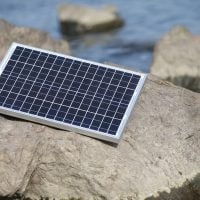Deadline: 28-Mar-23
The European Commission (EC) has launched the Horizon Europe Framework Programme (HORIZON) for Building up of knowledge on Nature Positive Economy and Supporting its scale-up.
Scope
- The EU biodiversity strategy for 2030 states that “industry and business have an impact on nature, but they also produce the important innovations, partnerships and expertise that can help address biodiversity loss”. From the perspective of the private sector, integrating natural capital and biodiversity considerations into their decision-making processes makes economic sense as it can enhance corporate resilience and minimise investment risks. At the same time, economic activities that aim at reversing of biodiversity loss can create positive outcomes for the society such as job creation and sustainable economic growth in rural, post-industrial and disadvantaged areas and strengthen resilience against environmental and climate stressors, contributing to a fair and green transition and recovery in line with the European Green Deal. According to the World Economic Forum, a nature-positive recovery “can unlock an estimated $10 trillion of business opportunity by transforming three economic ecosystems that are responsible for almost 80% of nature loss and create 395 million resilient jobs by 2030 in the process”.
- Nature-based solutions (NBS) can play a particularly key role in leveraging of the economic and societal potential of nature with the development of existing and new market sectors with ‘nature-based enterprises’ (NBEs) at the core. Such innovative NBEs use nature (and ecosystem services) as an input to deliver nature positive outputs – products, services and jobs that are sustainable, future-oriented, and more resilient. By definition, they constitute a backbone of the bioeconomy.
- However, nature-positive economy where such NBEs can thrive is still at its infancy and enabling framework conditions are required to improve market conditions and to unlock investment. The market is encountering many specific difficulties due to market fragmentation, early stage of development and difficulty in assembling the required knowledge, skillset, and governance structures for supplying and maintaining “living solutions” such as nature-based solutions. There is a need at the same time to increase manyfold the investment in NBS.
- The action should:
- On Concept: Undertake in-depth research into the key concepts underpinning nature positive economy, establishing synergies and trade-offs with other policies, strategies, and business models such as bioeconomy related, and exploring the role of nature positive activities and NBS in promoting transformative change to provide holistic solutions that address global challenges such as climate, biodiversity, and pollution crisis;
- On Market Knowledge: Building on the work of Horizon 2020 projects and their taskforces, identify barriers and analyse market potential in different economic sectors, at European and national level when possible, for each sector, identify the stakeholders of the different value chains for the different types of nature positive economic activities, estimating the net job creation potential with a view to supporting the framing of nature positive economy narrative. This work should include identification and analysis of representative case studies and reflections on positioning towards nature positive economic activities as defined by the Sustainable Finance Taxonomy;
- Foster collaboration between nature-based entrepreneurs, research and technical organisations, policy makers, financiers and investors, business development bodies through, for example, participatory arrangements and spaces, to close the Science Policy Implementation gap;
- On Indicators: Building on previous research, notably natural capital valuation methods including both monetary and non-monetary economic valuation approaches for nature-based solutions, deliver progress towards standardised, widely accepted economic indicators, reflecting wider socio-economic, biodiversity and natural capital benefits;
- On Market development: using the collaborative and participatory arrangements, develop and pilot strategies, measures (both market and non-market) and approaches for scaling and speeding up the implementation of nature positive economic activities, including Nature-based Solutions (NBS), both from supply and demand side perspective to boost nature-based market development, innovation, and job creation in EU and beyond. This may comprise for market supply economic, finance and governance innovations, capacity building and training;
- Explore and facilitate synergies and interconnection with different EU, MS and Horizon Europe Associated Countries initiatives, such as: EU and national Business and Biodiversity platforms, national restoration plans, Business Acceleration Services, Climate KIC, Smart Specialisation Strategies, Recovery Plans, the EU Biodiversity Partnership, Circular Bio-based Europe Partnership, European Bioeconomy Policy Forum, for more coordinated actions and aggregated impact on NBS and nature positive activities;
- Set up and/or collaborate with relevant marketplaces and similar initiatives at the relevant scales, so that potential project partners, entrepreneurs, investors, and innovation stakeholders can match supply, demand and expertise on designing, implementing, managing, monitoring, valuing, financing NBS, ecosystem services and nature positive activities;
- On Standardisation: support the engagement of the relevant communities (including the communities engaged in the relevant Horizon 2020, Horizon Europe and LIFE projects) in contributing to the development of sector-specific standards and/or certification schemes;
- Build on and/or establish synergies with the relevant work by initiatives/projects/studies including, but not limited to the EIB led study on facilitating access to finance for Nature-based solutions, the EC publication ‘The vital role of NBS in the Nature-Positive Economy’, the World Economic Forum’s New Nature Economy Report Series, The Economics of Biodiversity: The Dasgupta Review, The State of Finance for Nature 2021;
- Actions should bring together from the start multiple types of scientific expertise in social sciences and humanities, in particular in economics and finance, as well as scientific expertise in biodiversity and natural capital.
- Other conditions:
- Actions should envisage clustering activities with the projects with the Horizon 2020 and Horizon Europe Natural Capital Accounting and NBS project portfolio and respective task forces as well as any Horizon Europe relevant projects on NBS and Bioeconomy. To this end proposals should foresee dedicated tasks and appropriate resources for coordination measures, foresee joint activities and joint deliverables.
Funding Information
- The check will normally be done for the coordinator if the requested grant amount is equal to or greater than EUR 500 000, except for:
- public bodies (entities established as a public body under national law, including local, regional or national authorities) or international organisations; and
- cases where the individual requested grant amount is not more than EUR 60 000 (lowvalue grant).
Expected Outcomes
- In line with the European Green Deal priorities, in particular the EU biodiversity strategy for 2030 and the revised climate targets, the successful proposal will support the development of policies and market conditions to scale up and accelerate the implementation of nature positive economic activities with particular focus on Nature-based Solutions (NBS). It will promote mainstreaming of biodiversity, ecosystem services and natural capital valuation in the society and economy.
- Project results are expected to contribute to all of the following expected outcomes:
- Increased clarity of concepts around nature positive economy and its components, with better understanding of the synergies and trade-offs with other sustainable economic activities, such as a circular and sustainable bioeconomy, and the interactions with the EU sustainable finance taxonomy;
- New knowledge and increased expertise of relevant stakeholders in both public and private sectors, including economic and financial decision makers, on the market and determinants of nature positive activities with NBS at the core;
- Creation of an EU community of ‘nature-based enterprises’ as a basis for promoting EU global leadership;
- New enabling policy, regulations, support, tools, and capacity building measures, addressing market barriers, and leading towards better integration of innovative nature-based entrepreneurship and nature-based solutions in the current economic and financial system;
- Support to the implementation of the EU biodiversity strategy for 2030, the new EU climate adaptation strategy, the new EU sustainable finance strategy, and increased synergies with other key policy areas in support of European Green Deal priorities.
Expected Impact
- Proposals for topics under this destination should set out a credible pathway resulting in the strategic plan having the following impact: “Biodiversity is back on a path to recovery, and ecosystems and their services are preserved and sustainably restored on land, inland water and at sea through improved knowledge and innovation”. More specifically, one or more of the following impacts should materialise:
- Direct drivers of biodiversity decline will be understood and addressed – land and sea use change, natural resource use and exploitation, climate change, pollution, invasive alien species – as well as indirect drivers – demographic, socio-economic, technological, etc.
- Protected areas and their networks will be planned, managed and expanded and the status of species and habitats will be improved based on up-to-date knowledge and solutions.
- Biodiversity, ecosystem services and natural capital will be mainstreamed in the society and economy: e.g. they will be integrated into public and business decision-making; approaches for enabling transformative changes to tackle societal challenges will be built including by deploying nature-based solutions (NBS).
- Practices in agriculture, forestry, fisheries and aquaculture will be developed and improved to support and make sustainable the use of biodiversity and a wide range of ecosystems services.
- Biodiversity research and support policies and processes will be interconnected at EU and global levels, making use of advanced digital technologies and societal engagement where appropriate.
- The biodiversity and health nexus will be understood, in particular at the level of ecosystems. This will be achieved by using the one-health approach, in the context of climate change and globalisation and by addressing contributions and trade-offs.
- The impacts have been revised compared with the 2021-2022 work programme in order to take into account R&I activities included in the 2021-2024 strategic plan, but that are yet to be addressed. This was the case, for instance, for several direct drivers of biodiversity loss. The new drafting of the impacts makes clear that they are within the scope of the work programme.
Eligible Activities
- Eligible activities are the ones described in the call conditions. Applications will only be considered eligible if their content corresponds, wholly or in part, to the topic description for which it is submitted.
- Projects must focus exclusively on civil applications and must not:
- aim at human cloning for reproductive purposes;
- intend to modify the genetic heritage of human beings which could make such changes heritable (except for research relating to cancer treatment of the gonads, which may be financed);
- intend to create human embryos solely for the purpose of research, or for the purpose of stem cell procurement, including by means of somatic cell nuclear transfer.
- Projects must, moreover, comply with EU policy interests and priorities (environment, social, security, industrial policy, etc.).
- The following activities are generally eligible for grants under Horizon Europe:
- Research and innovation actions (RIA) — Activities that aim primarily to establish new knowledge or to explore the feasibility of a new or improved technology, product, process, service or solution. This may include basic and applied research, technology development and integration, testing, demonstration and validation of a small-scale prototype in a laboratory or simulated environment.
- Innovation actions (IA) — Activities that aim directly to produce plans and arrangements or designs for new, altered or improved products, processes or services. These activities may include prototyping, testing, demonstrating, piloting, large-scale product validation and market replication.
- Coordination and support actions (CSA) — Activities that contribute to the objectives of Horizon Europe. This excludes research and innovation (R&I) activities, except those carried out under the ‘Widening participation and spreading excellence’ component of the programme (part of ‘Widening participation and strengthening the European Research Area’). Also eligible are bottom-up coordination actions which promote cooperation between legal entities from Member States and Associated Countries to strengthen the European Research Area, and which receive no EU co-funding for research activities.
- Programme co-fund actions (CoFund) — A programme of activities established or implemented by legal entities managing or funding R&I programmes, other than EU funding bodies. Such a programme of activities may support: networking and coordination; research; innovation; pilot actions; innovation and market deployment; training and mobility; awareness raising and communication; and dissemination and exploitation. It may also provide any relevant financial support, such as grants, prizes and procurement, as well as Horizon Europe blended finance or a combination thereof. The actions may be implemented by the beneficiaries directly or by providing financial support to third parties.
- Innovation and market deployment actions (IMDA) — Activities that embed an innovation action and other activities necessary to deploy an innovation on the market. This includes the scaling-up of companies and Horizon Europe blended finance.
- Training and mobility actions (TMA) — Activities that aim to improve the skills, knowledge and career prospects of researchers, based on mobility between countries and, if relevant, between sectors or disciplines.
- Pre-commercial procurement actions (PCP) — Activities that aim to help a transnational buyers’ group to strengthen the public procurement of research, development, validation and, possibly, the first deployment of new solutions that can significantly improve quality and efficiency in areas of public interest, while opening market opportunities for industry and researchers active in Europe. Eligible activities include the preparation, management and follow-up, under the coordination of a lead procurer, of one joint PCP and additional activities to embed the PCP into a wider set of demand-side activities.
- Public procurement of innovative solutions actions (PPI) — Activities that aim to strengthen the ability of a transnational buyers’ group to deploy innovative solutions early by overcoming the fragmentation of demand for such solutions and sharing the risks and costs of acting as early adopters, while opening market opportunities for industry. Eligible activities include preparing and implementing, under the coordination of a lead procurer, one joint or several coordinated PPI by the buyers’ group and additional activities to embed the PPI into a wider set of demand-side activities.
Eligibility Criteria
- Any legal entity, regardless of its place of establishment, including legal entities from non associated third countries or international organisations (including international European research organisations) is eligible to participate (whether it is eligible for funding or not), provided that the conditions laid down in the Horizon Europe Regulation have been met, along with any other conditions laid down in the specific call topic.
- A ‘legal entity’ means any natural or legal person created and recognised as such under national law, EU law or international law, which has legal personality and which may, acting in its own name, exercise rights and be subject to obligations, or an entity without legal personality.
- Beneficiaries and affiliated entities must register in the Participant Register before submitting their application, in order to get a participant identification code (PIC) and be validated by the Central Validation Service before signing the grant agreement. For the validation, they will be asked to upload the necessary documents showing their legal status and origin during the grant preparation stage. A validated PIC is not a prerequisite for submitting an application.
- Specific cases:
- Affiliated entities — Affiliated entities (i.e. entities with a legal or capital link to a beneficiary which participate in the action with similar rights and obligations to the beneficiaries, but which do not sign the grant agreement and therefore do not become beneficiaries themselves) are allowed, if they are eligible for participation and funding.
- Associated partners — Associated partners (i.e. entities which participate in the action without signing the grant agreement, and without the right to charge costs or claim contributions) are allowed, subject to any conditions regarding associated partners set out in the specific call conditions.
- Entities without legal personality — Entities which do not have legal personality under their national law may exceptionally participate, provided that their representatives have the capacity to undertake legal obligations on their behalf, and offer guarantees to protect the EU’s financial interests equivalent to those offered by legal persons.
- EU bodies — Legal entities created under EU law including decentralised agencies may be part of the consortium, unless provided for otherwise in their basic act.
- To become a beneficiary, legal entities must be eligible for funding.
- To be eligible for funding, applicants must be established in one of the following countries:
- the Member States of the European Union, including their outermost regions: Austria, Belgium, Bulgaria, Croatia, Cyprus, Czechia, Denmark, Estonia, Finland, France, Germany, Greece, Hungary, Ireland, Italy, Latvia, Lithuania, Luxembourg, Malta, Netherlands, Poland, Portugal, Romania, Slovakia, Slovenia, Spain, Sweden.
- the Overseas Countries and Territories (OCTs) linked to the Member States: Aruba (NL), Bonaire (NL), Curação (NL), French Polynesia (FR), French Southern and Antarctic Territories (FR), Greenland (DK), New Caledonia (FR), Saba (NL), Saint Barthélemy (FR), Sint Eustatius (NL), Sint Maarten (NL), St. Pierre and Miquelon (FR), Wallis and Futuna Islands (FR).
- countries associated to Horizon Europe: Albania, Armenia, Bosnia and Herzegovina, Faroe Islands, Georgia, Iceland, Israel, Kosovo, Moldova, Montenegro, North Macedonia, Norway, Serbia, Tunisia, Turkey, Ukraine.
For more information, visit EC.









































